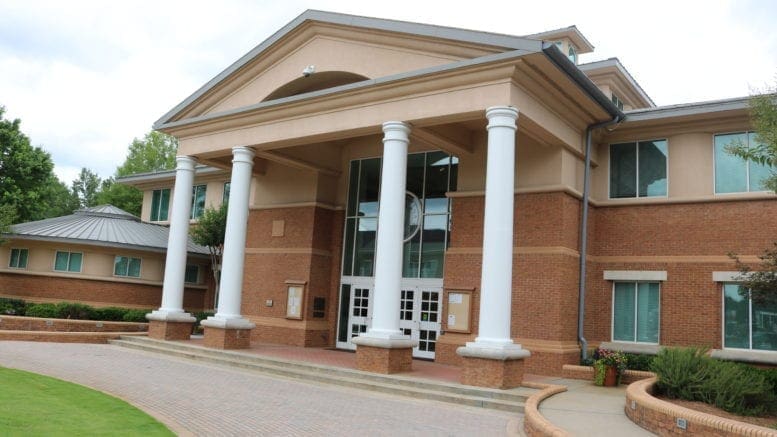As Smyrna and Cobb County students return to online classes, the city council is chipping in some of its funding from the Coronavirus Aid, Relief, and Economic Security (CARES) Act to help make sure they have reliable internet access at home.
Following a 7-0 vote Monday night, the city will spend $162,000 of the nearly $3 million it received through the CARES Act to create 900 WiFi hotspots for students in the city.
“As a result of the pandemic, students in the Smyrna area are required to do increasing amounts of work on computers,” said Smyrna City Administrator Tammi Saddler Jones. “Many students do not have WiFi access, which is necessary to successfully complete their work. As part of our public outreach and assistance initiative, the city would like to provide access to Smyrna residents.”
Smyrna Mayor Derek Norton added his own support for the proposal.
“We’re trying to use some of the CARES Act money to help the community,” he said. “This is just the first step in that, helping these students that are having to learn virtually have access to the internet that don’t have it. We’re talking about other ways in the future to help, through business grants and other things to help the community.”
City council member Tim Gould, who chairs the education committee, said the idea combines “a lot of creativity and hard work” from city staff and council members.
“As my kids experienced today — remote learning started today in their school — it’s challenging,” he said. “We’re fortunate that we have the technology at home, we have access to WiFi, but I’m sure there’s a great number of families here in Smyrna that don’t have that same support structure. The city will see what we can do with the CARES Act money and other resources to impact those families.”
Cobb County public schools are all virtual for the moment, though the district has announced a phased reopening to in-person instruction.
Georgia Governor Brian Kemp has also announced he will use CARES Act funding to improve internet access for students, allocating $29.3 million for broadband signal extenders from school buildings, and “expanding learning environments to support on-campus, socially distanced learning,” according to a press release. Kemp’s office may also explore transmitting mobile WiFi signals to students who live in apartments.

Haisten Willis is a freelance writer who lives in Smyrna with his wife, daughter and dog. He holds a master’s degree in journalism from California State University, Fresno, serves on the board of SPJ Georgia and even rides a bike when time allows.

Doesn’t ethernet suffice?
Ethernet cables wouldn’t serve the intended purpose, which is to give maximum access to students who are in class virtually during COVID-19.